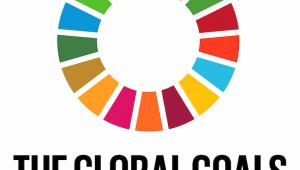In a report published today examining the implementation of the United Nations’ SDGs, which were agreed by world leaders in New York last September, the committee said the UK needs clarify its global strategy for implementing the goals and get its own house in order when it comes to meeting the SDGs at home.
Committee chair Stephen Twigg said “clear action is needed now” to ensure that the SDGs are on the radar of every secretary of state and minister, not just those working in international development.
“The goals require a cross-government approach,” he said. “[They] can only be achieved if countries work to implement the agenda in its entirety.
“We praise the role that the UK played in the shaping and agreement of the SDGs. What we want to ensure is that that momentum, that priority, that commitment, which was shown in the run up to New York, must not now be lost, both in our global role but also domestically.”
A cross-government approach will be necessary to both the UK’s international and national implementation of the SDGs. Since the country published a new aid strategy last year, its aid budget has been spread across a variety of departments, from the Foreign and Commonwealth Office to the Ministry of Defence.
Twigg noted that the committee has also expressed its concern, both today and before, that the new strategy does not prioritise the SDGs highly enough.
The report said that the lack of a strategic and comprehensive approach to the goals’ implementation throughout the UK government is likely to lead to areas of “deep incoherence” in policy that could mean the progress of some departments in undermined by others.
A DFID spokesperson noted that the government will publish a report setting out the UK’s contribution, across government, to implementing the SDGs.
But the committee pointed to the government’s reluctance to call this report a full implementation strategy, which it said is sorely needed.
Successive governments approaches to international tax cooperation and fairer tax rules are also cause for concern, the committee said, urging the government to ensure that the UK’s overseas territories and crown dependencies are in line with international best practice.
The report noted that achieving the ambitious SDGs will require “immense” financial investment from a variety of sources, including the abilities of developing countries to effectively collect taxes.
Developing countries are estimated to lose as much as $160bn to tax dodging every year, a practice which hits poorer countries the hardest.
The committee’s report echoed calls for discussions and decisions on international tax matters to be made within an inclusive body, like the UN, rather than one whose membership includes only developed countries.
Other changes recommended in the report include the need to leverage new methods of finance and the private sector, develop new legislation that suits the post-2015 development agenda and for the government to report annually on its implementation progress.
“This is not an agenda for developing countries alone, but for the whole world,” Twigg stressed. “Progress on working out how we will implement [it] in our own country has been disappointing so far.”













